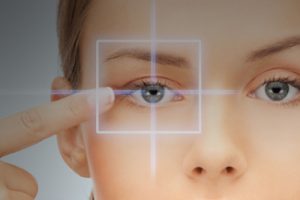All steroid medications must be taken with caution, as they also produce side effects that can affect your eyes and vision.
Corticosteroid drugs, also called steroids, stimulate the production of cortisol in the body. Cortisol is a natural hormone that helps to stabilize the body’s anti-inflammatory response system, and maintain immune function and blood pressure. Doctors typically prescribe steroid drugs to reduce any type of inflammation in the body, including eye inflammation.
Types of steroids
Any of the following forms of medication can contain steroid drugs:
- Eye drops
- Ointments
- Pills
- Inhalation
- Injections
Steroid eye drops are generally prescribed to reduce inflammation following an eye injury or eye surgery. They may also be prescribed for the treatment of inflammatory eye conditions, such as uveitis.
Steroid injections, pills, inhalations, or ointments may be prescribed to treat inflammatory skin conditions, such as eczema, atopic dermatitis, allergic reactions or rashes and other medical conditions, such as asthma and arthritis.
Steroid eye drops and pills are the two primary forms of steroid drugs that have been shown to cause visual side effects— though high doses of inhaled steroid medications can pose a high risk as well.
Visual side effects of steroid medications
Protect your eyes and vision from steroid side effects by visiting your eye doctor to monitor your eye health throughout your prescribed course of treatment, or as recommended by your eye doctor.
Glaucoma
One of the most concerning side effects of steroid medications is the potential threat of glaucoma. When the pressure within the eye increases, as it can with steroid drugs, the risk of developing glaucoma increases as well.
Glaucoma is a serious, sight-threatening disease that can develop over time (open-angle glaucoma) or appear suddenly (angle-closure glaucoma).
Although the reason for increased eye pressure from steroids is not fully understood, some doctors believe that steroids prevent effective clearing of debris within the aqueous layer of the eyes. A buildup of debris can prevent the fluid in the eye from draining properly. This can lead to increased eye pressure.
Glaucoma is called “the silent thief of sight” because it generally doesn’t produce any symptoms until the condition has progressed and vision is permanently lost.
Therefore, if your doctor has prescribed a steroid medication for longer than two weeks, it is important to schedule frequent eye exams (as recommended by your eye doctor) to monitor your eye pressure throughout your course of treatment.
Each patient is different and some are more sensitive to steroids than others. An increased sensitivity to steroids can result in an increase in eye pressure after just a few days of taking the medication.
Symptoms of glaucoma may include:
- Blurry vision
- Eye pain
- Red eyes
- Night vision difficulties
- Peripheral (side) vision difficulties
- Tunnel vision
- Nausea with or without vomiting
If you are taking steroid medication, contact an eye doctor near you, who can provide reassurance that your eye health is not being impacted.
SEE RELATED: Does Smoking Affect the Eyes?
Cataracts
Posterior subcapsular cataracts are another common side effect of steroid medications. This type of cataract causes a small area underneath the eye’s lens to become cloudy.
Symptoms of a cataract may include:
- Blurry vision
- Colors appear less vibrant
- Double vision
- Halos around lights
- Peripheral vision difficulties
- Night vision difficulties
Central serous chorioretinopathy (CSC)
Central serous chorioretinopathy (CSC) is a serious side effect of steroid medication that causes a buildup of fluid underneath the retina. This can lead to retinal detachment and vision loss.
Symptoms of CSC may include:
- Blurred vision in one or both eyes
- Objects appear farther away or smaller
- Straight lines appear twisted or wavy
Slow wound healing
When steroids are prescribed for an eye infection or a corneal ulcer, they are often given in combination with a topical antibiotic. However, according to studies, steroids may in fact inhibit the growth factors necessary for wound healing, resulting in a slower recovery from the infection.
Moreover, steroids prescribed for certain viral eye infections have been shown to worsen the eye infection.
These side effects can impact the healing process, increase recovery time, and/or cause recurrent infections.
Therefore, when taking steroids for an eye infection, it is important to follow up with your eye doctor until your infection has cleared and you are able to discontinue the steroid medications.
How common are visual side effects?
Steroid side effects are more likely to occur if you are prescribed a high dose of steroids, or if the prescribed course of treatment is longer than two weeks.
If your doctor prescribed a low dose of steroids, especially for less than two weeks, your risk of developing visual side effects is relatively low.
However, some patients are more sensitive to steroids or have a medical condition or history that can increase their risk of side effects.
Common risk factors include:
- Age: children (under age 6) and adults (over age 50)
- Diabetes
- Rheumatoid arthritis
- Family history of open-angle glaucoma
- High myopia (nearsightedness)
Steroids are an effective medical intervention for conditions that cause inflammation in the body and eyes.
If you are concerned about the visual side effects caused by steroids, discuss your concerns with your doctor. Your doctor will weigh the benefits of the medication versus the risks associated with it, to determine if steroids are an appropriate treatment option for you.
Following your doctor’s instructions on how to properly take your steroid medication, and visiting your eye doctor to monitor your eye health will help to reduce your risk of visual complications from steroid drugs.
LEARN MORE: Guide to Eye Health
If you are concerned that steroid medication could be affecting your vision, contact an eye doctor near you.










